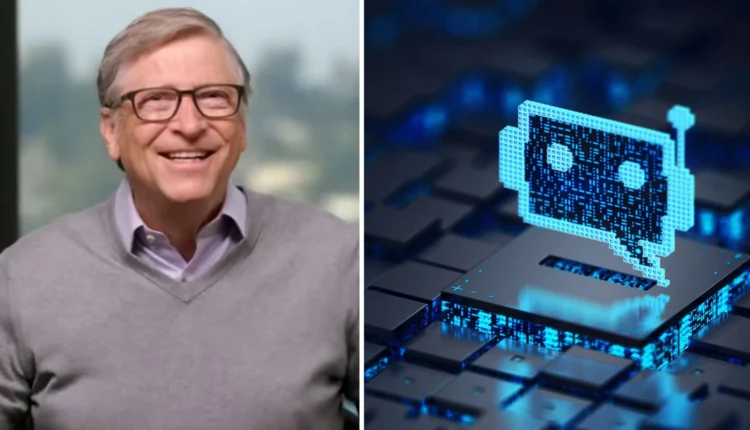©2021 Reporters Post24. All Rights Reserved.
Soon, artificial intelligence (AI) could help teach your kids and improve their grades. That’s according to billionaire Microsoft co-founder Bill Gates, who says AI chatbots are on track to help children learn to read and hone their writing skills in 18 months time.
“The AI’s will get to that ability, to be as good a tutor as any human ever could,” Bill Gates said in a keynote talk on Tuesday at the ASU+GSV Summit in San Diego.
AI chatbots, like OpenAI’s ChatGPT and Google’s Bard, have developed rapidly over the past several months, and can now compete with human-level intelligence on certain standardized tests. That growth has sparked both excitement over the technology’s potential and debate over the possible negative consequences.
Count Gates in the camp of people who are impressed. Today’s chatbots have “incredible fluency at being able to read and write,” which will soon help them teach students to improve their own reading and writing in ways that technology never could before, he said.
“At first, we’ll be most stunned by how it helps with reading — being a reading research assistant — and giving you feedback on writing,” said Gates.
Historically, teaching writing skills has proven to be an incredibly difficult task for a computer, Gates noted. When teachers give feedback on essays, they look for traits like narrative structure and clarity of prose — a “high-cognitive exercise” that’s “tough” for developers to replicate in code, he said.
But AI chatbots’ ability to recognize and recreate human-like language changes that dynamic, proponents say.
Kevin Roose, a New York Times tech columnist, wrote last month that he’s already used programs ChatGPT to improve his writing, using the AI’s ability to quickly search through style guides online.
Some academics say they’re impressed by chatbots’ ability to summarize and offer feedback on pieces of text, or even to write full essays themselves.
However, those same academics warn that the technology is not yet fully formed, and can inadvertently introduce significant errors or misinformation. And AI technology must improve at reading and recreating human language to better motivate students before it can become a viable tutor, Gates said.
“If you just took the next 18 months, the AIs will come in as a teacher’s aide and give feedback on writing,” said Gates. “And then they will amp up what we’re able to do in math.”
The idea that chatbots will excel at reading and writing before math may be somewhat surprising: Algebra and calculus are often used to develop AI technology.
But chatbots, which are trained on large datasets, often struggle with mathematical calculations, experts note. If a solved math equation already exists within the datasets the chatbot is trained on, it can provide you with the answer. But calculating its own solution is a different story.
Gates said he regularly asks Microsoft AI developers why chatbots can’t perform relatively simple calculations, or even multiply some numbers. The answer: AI needs improved reasoning abilities to handle the complexity of a math calculation.
It may take some time, but Gates is confident the technology will improve, likely within two years, he said. Then, it could help make private tutoring available to a wide swath of students who might otherwise be unable to afford it.
That’s not to say it’ll be free, though. ChatGPT and Bing both have limited free versions now, but the former rolled out a $20-per-month subscription plan called ChatGPT Plus in February.
Still, Gates said it’ll at least be more affordable and accessible than one-on-one tutoring with a human instructor.
“This should be a leveler,” he said. “Because having access to a tutor is too expensive for most students — especially having that tutor adapt and remember everything that you’ve done and look across your entire body of work.”


